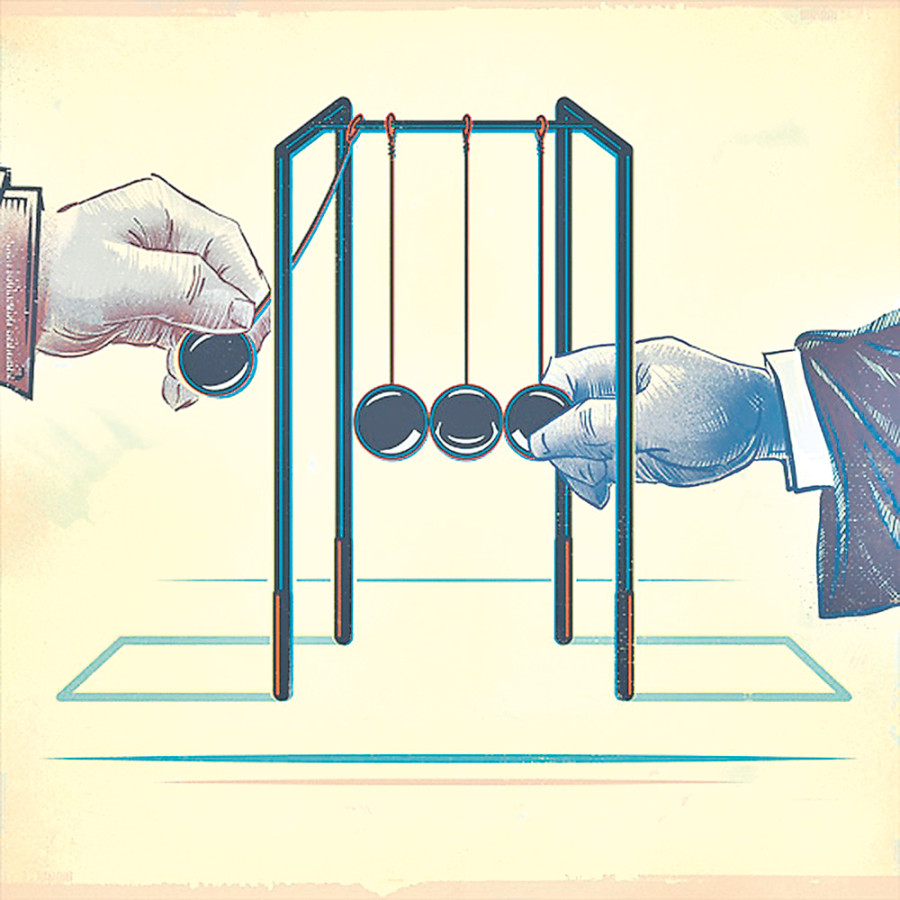Opinion
Political priority
Ordinary Madhesis should be made to feel that the government is doing its bit in addressing their demands
Shreya Paudel
What happened last September is hard to forget. The Madhesi people were in the streets of Birgunj and Janakpur and India had imposed a blockade on Nepal. The priorities of the nation at that time were clear: persuade India to lift the illegal and “unofficial” blockade and address the demands of the agitating Madhesi parties. Although the blockade was lifted, the Madhesi demands are yet to be addressed.
Since then, many political scenes have played out in the country. Without any chronological order, the President and the Speaker of Parliament were elected. Likewise, Sushil Koirala lost his claim to the government to KP Oli. India eventually lifted the blockade. The Maoists have made it clear that the conclusion of the peace process is of utmost importance for them, due to which they recently broke their coalition with the Oli-led government. Meanwhile, the Madheshi protests have become silent in the Tarai-Madhes but Upendra Yadav played an ideological masterstroke by forming an alliance with the Adivasi-Janajati organisations, which represent other marginalised communities. This step has proven that he is a better political player than his counterparts of Madheshi Morcha. There were also endless rounds of talks between the Madhesi parties and the Oli government, but none came to fruition. Therefore, the end result till now for what ought to be one of the most important priorities of the country—placating the Madhesi parties and implementing the constitution—is that there is no end result.
Change in perception
This is really tragic because one cannot be assured that Madhesi youths, who have protested for three major rounds since 2006, will not protest again. More importantly, many if not most people from the Madhes and the Adivasi-Janajati cluster have historic grievances with the state. Opponents of this ethnic grievance theory might not acknowledge it. However, in mass politics, it does not matter whether or not the Madhes is really more developed than parts of the hills. What matters is the perception of a rickshaw puller in Janakpur and a tea stall owner in Birgunj. In many interviews and news reports from the last Madhes movement, it clear that the Madhesis feel the state has discriminated against them. It is also objectively true, with many scholars referring to the Madhes as the internal colony of Kathmandu since the days of Ranas, but objectivity matters less in mass movements. So what needs to be done now is that the lay people from Birgunj, Janakpur and Madhesi villages are made to feel that the government is doing its bit in addressing the demands of their movement. Their perception has to be changed for a peaceful Nepal.
This may raise a question: who needs to be persuaded to persuade the Madhesi people? Some may not agree with it but right now, it is the same old Madheshi Morcha and Sanghiya Gathabandan that hold the issues of marginalised communities. They are the ones asking for institutionalising federalism with a tinge of recognition of the marginalised identities to correct the mistakes of the past. Therefore, the political representatives of the Madhesis for now are the parties and leaders who stood by their side when about 50 people were shot by the police.
Stability now
Admittedly, the Oli government laudably gave Nepal a new way forward in its foreign policy by strengthening ties with China despite great pressure from India. However, it did fail miserably to reach an amicable solution with the Madhesi Morcha and the federalists. But the Nepali Congress and the Maoists that have now formed the ruling coalition also failed Madhesis and Janajatis. Prachanda failed them by bulldozing through the constitution while the Madhesh burned, and Deuba failed them by siding with his Akhanda merry men and sidelining Tharus in the far west.
Therefore, Alzheimer’s seems to have set in, among the ardent supporters of both men, who now have suddenly become the new messiahs of the marginalised communities. But it is also understandable to a point because there is no other option left. These are the men who will now lead the government and the country but they surely need to rise above the historic beating around the bush, and hit the nail right on its head. Solving the Madhes crisis and implementing the constitution should be their sole purpose. Likewise, the ball is also in the court of the Madhesi parties. Now they cannot shy away from negotiations with the next government for which they demolished the Oli government.
However, the constitutional amendments will not happen without the UML’s consent. Hence, it is again upon the new captain of the ship, Prachanda, to persuade the UML and KP Oli, whom he had denounced with his characteristically communist accusations at Parliament. God only knows how Prachanda will alter his relationship with the UML now, but he has to. The country needs stability now, which can only be achieved by resolving all its crises. That will start only by convincing the marginalised communities and their political representatives to own the constitution and move forward.
Paudel is pursuing an MSc in Conflict Studies at the London School of Economics and Political Science




 16.33°C Kathmandu
16.33°C Kathmandu










